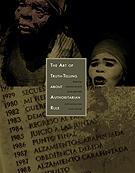The University of Wisconsin Press
Asian Studies / Politics / History
|
Pretext
for Mass Murder In the early morning hours of October 1,
1965, a group calling itself the September 30th Movement kidnapped
and executed six generals of the Indonesian army, including its
highest commander. The group claimed that it was attempting to
preempt a coup, but it was quickly defeated as the senior surviving
general, Haji Mohammad Suharto, drove the movement's partisans
out of Jakarta. Riding the crest of mass violence, Suharto blamed
the Communist Party of Indonesia for masterminding the movement
and used the emergency as a pretext for gradually eroding President
Sukarno's powers and installing himself as a ruler. Imprisoning
and killing hundreds of thousands of alleged communists over
the next year, Suharto remade the events of October 1, 1965 into
the central event of modern Indonesian history and the cornerstone
of his thirty-two-year dictatorship.
|
"Roosa takes readers into that fascinating
hyper-heated political atmosphere of Sukarno's Indonesia . .
. His account shows how the bloody denouement of October 1965
was the sum of these tensions-rival military factions, maneuvers
by special units within the Communist Party, and the efforts
of foreign intelligence agencies to manipulate these divisions.
Lucid, thoughtful, and engaging, this is a brilliant, strikingly
original analysis." |
||||||||||
|
If you have trouble accessing
any page in this web site, contact our Web manager. Updated June 25, 2012 © 2012, The Board of Regents of the University of Wisconsin System |

